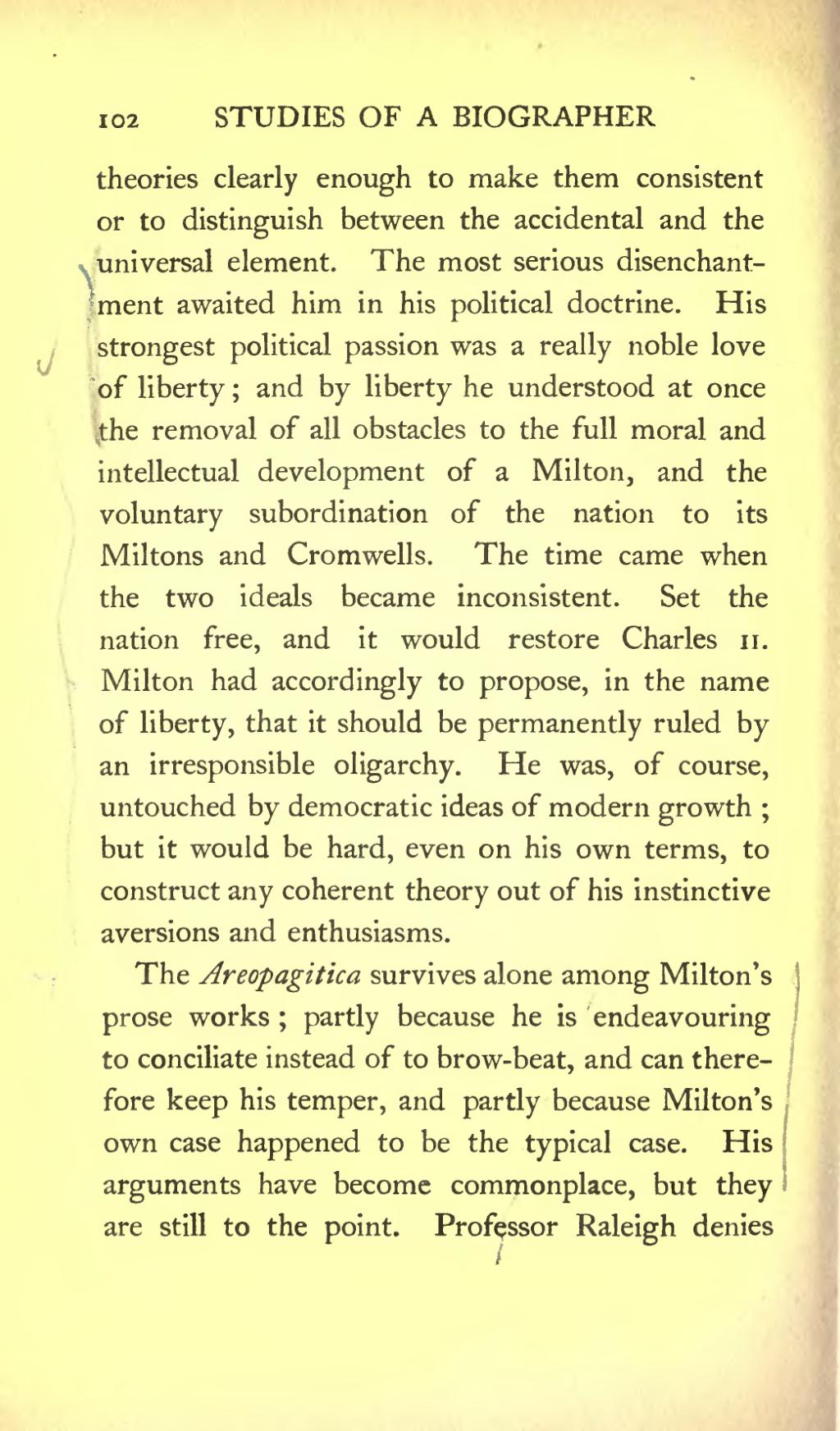theories clearly enough to make them consistent or to distinguish between the accidental and the universal element. The most serious disenchantment awaited him in his political doctrine. His strongest political passion was a really noble love of liberty; and by liberty he understood at once he removal of all obstacles to the full moral and intellectual development of a Milton, and the voluntary subordination of the nation to its Miltons and Cromwells. The time came when the two ideals became inconsistent. Set the nation free, and it would restore Charles II. Milton had accordingly to propose, in the name of liberty, that it should be permanently ruled by an irresponsible oligarchy. He was, of course, untouched by democratic ideas of modern growth; but it would be hard, even on his own terms, to construct any coherent theory out of his instinctive aversions and enthusiasms.
The Areopagitica survives alone among Milton's prose works; partly because he is endeavouring to conciliate instead of to brow-beat, and can therefore keep his temper, and partly because Milton's own case happened to be the typical case. His arguments have become commonplace, but they are still to the point. Professor Raleigh denies

